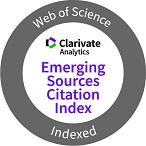Adoption determinants of the International Accounting Standards IAS/IFRS by the developing countries
Keywords:
Developing countries, International financial reporting standards, Institutional environmentAbstract
This paper’s main objective is to identify certain explanatory factors that likely clarify the choice of applying IAS/IFRS adopted by developing countries (DCs) up until the year 2008. Based on a sample consisting of 74 DCs, the empirical results have indicated that the DCs most likely to adopt IAS/IFRS have a high level of economic growth, along with a legal system of common law and an advanced educational level.
Downloads
References
Affes, H. & Callimaci, A. (2007). Les déterminants de l’adoption anticipée des normes comptables internationales : choix financier ou opportunisme. Comptabilité Contrôle Audit, 13(2), 149-166.
Al-Akra, M., Jahangir, A. M. & Marashdeh, O. (2009). Development of accounting regulation in Jordan. The International Journal of Accounting, 44, 163-186.
Arpan, J. S. & Radebaugh, L. H. (1985). International Accounting and Multinational Enterprising. New York: Wiley.
Barbue, E. (2004). L’harmonisation comptable internationale: d’un vagabondage comptable à l’autre. Comptabilité Contrôle Audit, 10, 1, 37-61.
Belkaoui A. (1983). Economic, Political and Civil Indicators and Reporting and Disclosu re Adequacy: E mpirical Investigation. Journal of Accounting and Public Policy, 2, 356-412.
Bradshaw, M. & Miller, G. (2003). Will harmonizing accounting standards really harmonize accounting? Evidence from non-US firms. Working paper. Harvard University.
Chamisa, E. (2000). The relevance and observance of the IASC standards in developing countries and the particular case of Zimbabwe. The International Journal of Accounting, 35(2), 267-286.
Cooke, T. E. & Wallace, R. S. O. (1990). Financial disclosure regulation and its environment: A review and further analysis. Journal of Accounting and Public Policy, 9, 79-110.
Cooke, T. & Wallace, O. (1990). Financial disclosure regulation and its environment: A review and further analysis. Journal of Accounting and Public Policy, 9(2), 79-110.
Delvaille, P., Ebbers, G. & Saccon, C. (2005). International financial reporting convergence: Evidence from three continental European countries. Accounting in Europe, 2, 137-164.
Doupnik, T. & Salter, S. (1995). External environment, culture, and accounting practice: A preliminary test of a general model of international accounting deve lopment. The International Journal of Accounting, 30(3), 189-202.
Dumontier, P. & Raffournier, B. (1998). Why firms comply voluntarily with IAS : an empirical analysis with Swiss data. Journal of International Financial Management and Accounting, 9(3), 216-245.
Epstein, B. J. & Mirza, A. A. (2006). IFRS. Interpretation and application of International Financial Reporting Standards. John Wiley & Sons, Inc.
Gray, S. J. & Radebaugh, L. H. (1997). International Accounting and Multinational Enterprises. New York: John Wiley & Sons.
Hassab Elnaby, H. R., Epps, R. W. & Said, A. A. (2003). The impact of environmental factors on accounting development: An egyptian longitudinal study. Critical Perspectives on Accounting, 14, 273-292.
Hove, M. (1986). The Anglo-American influence on international accounting standards: The case of the Disclosure standards of the international accounting standards committee. Research in Third World Accounting, 1, 55-66.
Jermakowicz, E. K. & Gornik-Tomaszewski, S. (2006). Implementing IFRS from the perspective of EU publicly traded companies. Journal of International Accounting, Auditing and Taxation, 15, 170-196.
Jermakowicz, K. (2006). Implanting IFRS from the perspective of UE publicly traded company. Journal of International Accounting Auditing and Taxation, 15, 170-196.
Joshi, P. L. & Ramadhan, S. (2002). The adoption of international accounting standards by small and closely held companies: Evidence from Bahrain. The International Journal of Accounting, 37, 429-440.
Larson, R. K. & Kenny, S. Y. (1995). An empirical analysis of international accounting standards, equity markets, and economic growth in developing countries. Journal of International Financial Management and Accounting, 6(2), 130-157.
Larson, R. K. & Street, D. L. (2004). Convergence with IFRS in an expanding Europe: Progress and obstacles identified by large accounting firms’ survey. Journal of International Accounting, Auditing & Taxation, 13, 89-119.
Larson, R. K. (1993). International accounting standards and economic growth: an empirical investigation of their relationship in Africa. Research in third world Accounting, 24, 165-179.
Leuz, C. & Verrecchia, R. (2000). The economic consequences of increased disclosure. Journal of Accounting Research, 38, 91-124.
Nobes, C. (1998). Towards a general model of the reasons for international differences in financial reporting. Abacus, 34, 2, 162-185.
Nobes, C. W. & Parker, R. (2004). Comparative international accounting (8th ed). London: Prentice Hall.
Omneya, A. & Weetman, P. (2003). Introducing International Accoun ting Standards to an emerging capital market: relative familiarity and language effect in Egypt. Journal of International Accounting, Auditing & Taxation, 12, 63-84.
Standish, P. (2003). Evaluating capacity for direct participation in international accounting harmonisation: France as a test case. Abacus, 39(2), 186-210.
Street, D. (2002). GAAP 2001 benchmarking national accounting standards against IAS: Summary of results. Journal of International Accounting, Auditing & Taxation, 11, 77-90, 1-29.
Street, D. L. & Larson, R. K. (2004). Large accounting firms’ survey reveals emergence of “Two Standard” system in the European Union. Advances in International Accounting, 17.
Trembley, M. A. (1989). Accounting method choice in the software industry: characteristics of firms electing early adoption of SFAS No. 86. The Accounting Review, 64(3), 529-538.
Wooly, R. (1998). International accounting standards and economic growth, an empirical investigation of their relationship in Asia. Working Paper series Australia: School of Accounting and Law, RMIT.
Zeff, S. A. (1998). The IASC core standards: what will the SEC DO? The Journal of Financial Statement Analysis, 67-78.
Zeghal, D. & Mhedhbi, K. (2006). An analysis of the factors affecting the adoption of international accounting standards by developing countries. The International Journal of Accounting, 41, 373-386
Downloads
Published
How to Cite
Issue
Section
License
Copyright (c) 2021 Journal of Economics, Finance and Administrative Science

This work is licensed under a Creative Commons Attribution 4.0 International License.











